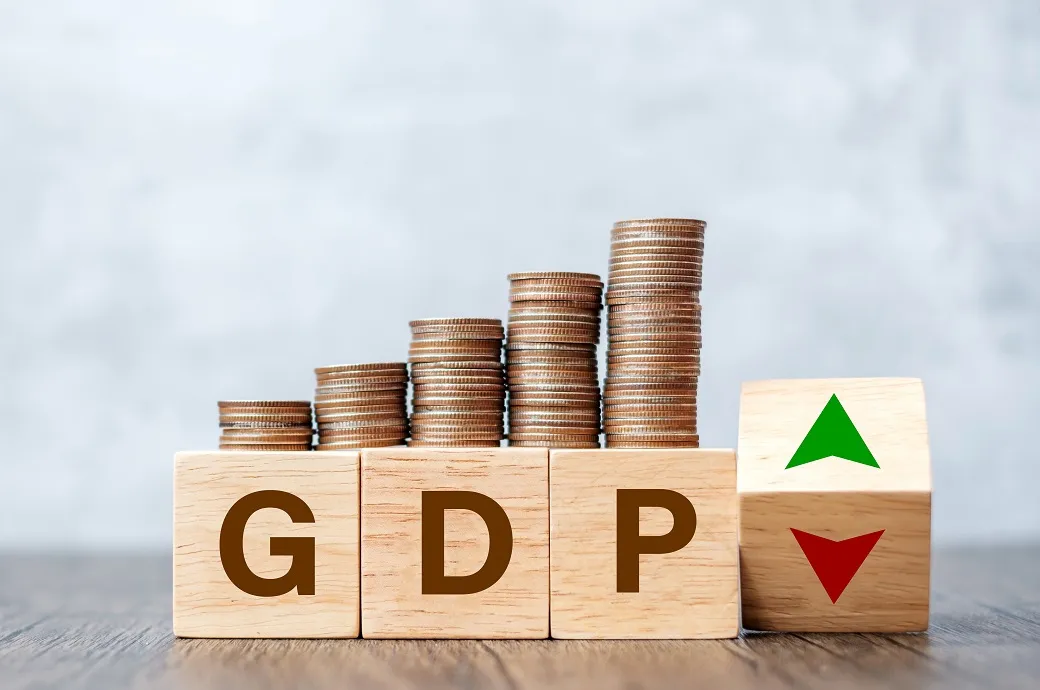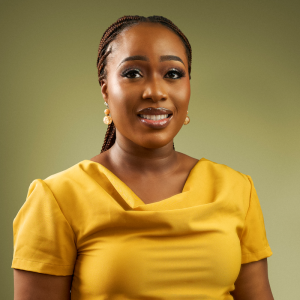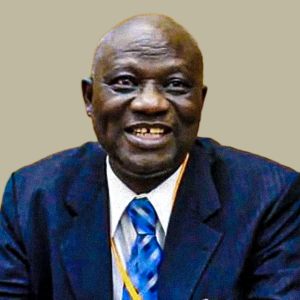While the rebased GDP figures provide a more accurate economic picture, they also reveal persistent structural imbalances—most notably, the disproportionate dominance of the services sector and the continued decline of manufacturing, which undermines job creation and broad-based growth.
Nigeria’s economic structure suffers from a "missing middle"—a hollowed-out industrial sector that is crucial for transformation. The lack of emphasis on manufacturing has resulted in jobless growth, where GDP rises without corresponding improvements in livelihoods or employment.
Since the Structural Adjustment Programme of the 1980s, Nigeria’s ideological shift toward excessive market liberalisation and unaccountable privatisation has stripped the economy of productive assets, weakened industrial capacity, and led to wasteful, non-developmental use of public resources.
There is a need for a return to deliberate, state-led industrial policy—where government partners with credible private actors, builds capital goods industries, and ensures input-output linkages across agriculture, manufacturing, and services. Without this, economic growth will remain shallow and unsustainable.
A sustainable development model must be based on continuous, structured collaboration between government, private sector, and labour. This “public-private interface” should drive planning, monitor mutual commitments, and promote accountability to avoid elite capture, corruption, and policy inconsistency.

Watch Previous Episodes Here
Rebasing GDP often makes headlines, presenting an image of economic growth and renewed optimism. However, beneath these impressive figures lies a critical question: does rebasing signify real progress, or is it just a statistical illusion?
In this episode of Kingsgate Brief, we go beyond the surface of rebased GDP numbers to explore what truly drives structural transformation in fragile and developing economies. While GDP rebasing updates the economic picture by capturing emerging sectors, it does not automatically address underlying challenges such as weak institutions, overreliance on resource rents, or limited productive capacity.
This conversation delves into:


Understanding these dynamics is crucial for policymakers, investors, and development practitioners seeking real economic transformation rather than short-term statistical gains.
EPISODE SUMMARY:
This episode discusses Nigeria’s rebased GDP figures, exposing the country’s overreliance on services and chronic neglect of industrial development. This episode emphasizes the need for structural transformation and a decisive ideological shift in governance where the state actively drives industrial policy, partners with a credible private sector, and prioritizes sustainable, inclusive economic growth over superficial metrics.
Dr. Oluwanbepelumi Olanubi: Alright, hello everyone and welcome to another insightful episode of Kingsgate Brief, the official podcast series of Kingsgate Advisors Institute. Our podcast brings together leading economists, policymakers and thought leaders from across Africa and beyond to explore critical topics shaping the global economic trajectory. These episodes dive into timely issues, offering expert insights, strategic analysis and actionable solutions to the evolving global and even local economic landscape.
I’m so glad you’re joining us today, and this particular episode promises to be truly thought-provoking. I am Oluwanbepelumi Olanubi, the Executive Director of the Institute, and today I am your host. We’ll be taking a closer look at Nigeria’s rebased GDP figures, the geological shifts for structural transformation and accelerated growth in Nigeria. What do these figures really mean? What does it tell us? I mean, more importantly, what are the figures not telling us?
In the light of the recent rebasing efforts there is a renewed opportunity to examine the structure and drivers of the economy critically. While rebasing provides a more accurate picture of economic size and sectoral distribution, it also reveals underlying weaknesses, particularly the persistence of low productivity, informality and limited structural diversification for the Nigerian economy. The rebasing exercise should go beyond numbers. It must catalyze deeper thinking about structural transformation and accelerated growth. Now for this podcast series we’ll analyse the new GDP numbers, read what we use about the Nigerian economy and also we’ll look at the impurities for ideological shifts when it comes to structural transformation, competitiveness and even long-term development strategies. Now to navigate this and to discuss this and more, I’m really honoured to have today with me a very distinguished guest, Professor Olu Ajakaiye. Now let me read his bio shortly so that we know what he has done.
Prof. Olu Ajakaiye, a Fellow, Nigerian Economic Society, is currently Chairman, African Centre for Shared Development Capacity Building (ACSDCB), Ibadan – a research and training Centre for Shared Development Policy, Planning, Implementation and Impact/Outcome Assessment in Africa. Earlier positions he had held include: Director-General, Nigerian Institute of Social and Economic Research (NISER), Ibadan (1999-2004) and Director of Research, African Economic Research Consortium (AERC) Nairobi; Kenya (2004-2011); President, Nigerian Economic Society (2013-2015); Member, National Conference, 2014; Vice President for Africa, Intergovernmental Council of Management of Social Transformations (MOST) of UNESCO (2000–2004); editor, Journal of Economic Management (1995–2002); Business Manager, African Journal of Economic Policy (1994–2004) and Editor, AERC Supplement of the Journal of African Economies, University of Oxford, (2004- 2011).
He served on National Working Committee for the Preparation of Nigeria’s Vision 2010, 2020 and Nigeria’s Agenda 2050. Olu Ajakaiye was also the Team Leader of the Technical Team that prepare the Oyo State Agenda 2040 and a member of the team that prepared the Economic Recovery and Growth Plan, 2017-2020 and the National Development Plan of Nigeria, 2021-2025. He also served on the Advisory Panel of the UN African HDR, 2011, Advisory Board, UNHDR, New York, 2016, 2019-2023; Commissioning Panel, DFID/Economic and Social Research Council, London, 2015 – 2016, among others.
Prof. Ajakaiye consults for several international organisations, including The World Bank, UNECA, UNDP, ECOWAS, IDRC, ACBF, JICA (UK), EU, DFID, British Council, BMGF, and many Nigerian Government MDAs.
Olu Ajakaiye obtained his B.Sc. Economics from the University of Ibadan, Nigeria and PhD Economics from Boston University, USA. He was a John Holt Scholar at the University of Ibadan, a NISER Scholar at Boston University, IDRC Thesis Grantee, Boston University and AERC Senior Visiting Scholar at Université Laval, Quebec, Canada, 1993. Prof. Ajakaiye specializes in development economics and has published widely in the area.
Ladies and gentlemen, please welcome with me Professor Ajakaiye. Good morning, sir, and we are so pleased to have you this morning.
Professor Olusanya Ajakaiye: Good morning, Pelumi, and it’s a privilege to join you in this podcast. Thank you very much.
Dr. Oluwanbepelumi Olanubi: Thank you very much sir. So before we go right into the full discussion, I just want to encourage our viewers to catch up on our previous episodes. Please do well to check our YouTube page, just search Kingsgate Advisors Institute and hit the subscribe button, hit the notification bell and stay updated.
We would also like you to follow us on other social media platforms like LinkedIn and Instagram. Just search for the company’s name and also visit our website to see what we’ve been doing and all the works we have on the ground.
I think it’s time to just dive right into it.
And sir, I’m going to start with something very interesting. I just want to ask you, what do Nigeria’s rebased GDP number really tell us about the structure of the Nigerian economy? How should policy makers, the governments, how should they interpret this number beyond the surface level optimism that we’re seeing? How should we look at this number critically in the light of the structure of the Nigerian economy?
Professor Olusanya Ajakaiye: Well, thank you very much again, my dear Executive Director. The rebasing process of GDP of any country is actually aimed at getting a more precise measure of the size and structure of the economy. This rebasing exercise has done that. It has now at least given us the latest figure when it comes to the size of the economy. It also gives us information about the sectoral distribution of the GDP of the economy. So to that extent, it’s a wonderful report.
I also like to commend the government and, of course, NBS management now for avoiding the long delay that we had between the previous rebasing and the one that was done in 2014, which changed the base year to 2010. We had a period of 20 years before we did a rebasing in 2014. This one is around 10 years, which is quite good, and I hope it will sustain this process so that we don’t repeat another long stay and therefore lose the precision that we require for policymaking.
Now, the informational content of the current rebasing process and the data that we have is that the size of the economy has actually expanded reasonably, of course very low, but at least it’s not negative. 3.13% as of 2024, which is not a bad figure, having regard to the development globally and also within our own economy. But certainly we have to do more because 3.1%, 3.2%, anything below 8% is not likely to translate into what we all desire, which is a more abundant life for the average
Nigerian, job opportunities and a robust livelihood. This growth rate, while not too bad, is not good enough. I’m sure government knows that that’s the case, but at least we’re happy that it’s not negative. Now, when it comes to the structure of the economy, what we also have is that the structure has not changed between the last rebasing and the current one.
In fact, the structure has become a lot deeper in the direction of excessive contribution of the service sector and decimated contribution of the manufacturing sector. Evidence abounds to show that the process of development is to move from agriculture into secondary activities, which is basically industry at the core of which we have manufacturing, and then services, so that services can then be serving the economy. An economy where you have rudimentary agriculture, which we currently have, very rudimentary, low productivity, disability trade that you have, that kind of
economy is not the one that will generate the kind of jobs that will then make life more abundant for the average Nigerian.
Guest

Executive Director, Kingsgate Advisors Institute

Chairman, African Centre for Shared Development Capacity Building (ACSDCB), Ibadan
Address:
54B, Adeniyi Jones Avenue, Ikeja, Lagos, Nigeria.
Contact:
+2347033052120
info@kingsgateinstitute.org
© Kingsgate Advisors Institute. All rights reserved.
Address:
54B, Adeniyi Jones Avenue, Ikeja, Lagos, Nigeria.
Contact:
+2347033052120
info@kingsgateinstitute.org
© Kingsgate Advisors Institute. All rights reserved.